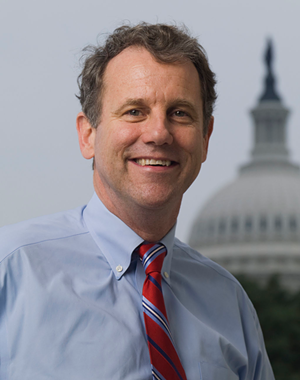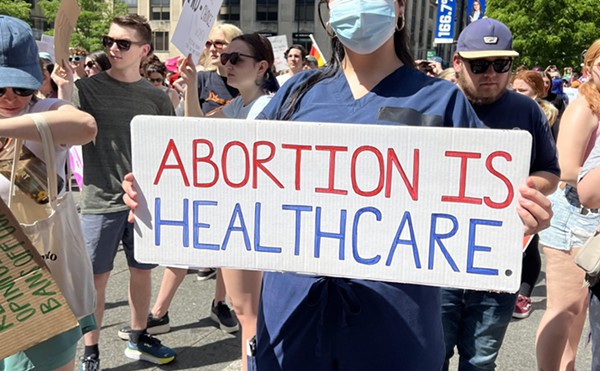U.S. Sen. Sherrod Brown left the Buckeye State for Iowa on Jan. 30, ostensibly to launch a multi-state “Dignity of Work” tour highlighting what he says are progressive ideas to boost the nation’s working class.
But it’s easy to read Brown’s tour starting in the famous early presidential primary proving ground as a launch of another sort: a warm-up lap for the Democrat’s potential run for president.
Brown didn’t specifically mention throwing his hat into the ring for the Democratic Party presidential primary during remarks to a few hundred supporters in Brunswick, an industrial enclave outside Cleveland, but he did nod noncommittally to the idea in an earlier conference call with reporters and promised a decision by March.
“If I don’t run for president or if I do, I want ‘Dignity of Work’ to be the centerpiece of every Democratic campaign in the country,” he said.
Despite the coyness about a bid, Brown’s 20-minute speech at the Brunswick event definitely focused on 2020, on President Donald Trump and on appealing to the working-class voters who helped deliver Ohio and other Midwestern states to Trump in 2016. Sure, that could all be taken to be remarks about the preparation for the larger political battle that will play out around the next presidential election between Democrats and the GOP. But it wouldn't be unreasonable to read them in a more specific light either as Brown mulls a bid.
"Donald Trump has used his phony populism to divide Americans and to demonize immigrants," Brown said. “Real populism is not racist. Real populism is not anti-Semitic. Real populists don’t engage in hate speech and don’t rip babies from families at the border.”
It all sounds very campaign-like. But Brown has a lot of factors to consider as he continues to weigh a potential run.
The primary field will likely be very crowded, for one. A number of other Democrats, including U.S. Sen. Elizabeth Warren and former Vice President Joe Biden, are considering jumping into the race, and a few have already officially announced their candidacies. Among those are U.S. Sen. Kamala Harris, who launched her bid on Good Morning America on Martin Luther King, Jr. day earlier this month. Harris grabbed a lot of attention from Democrats — and, presumably, party funders — with her announcement.
Brown, meanwhile, has less name recognition than some of the party’s big stars, and his populist message and record are progressive enough that they may put some of the party’s deeper-pocketed, Wall Street-aligned funders off.
But Brown could make up for it in other ways. For one, he’s fresh off last year’s seven-point victory over Trump-approved U.S. Rep. Jim Renacci in a state that generally delivered humbling defeats to statewide Democratic candidates and went to Trump by eight points in 2016. Renacci was a weak candidate, some pundits have pointed out, but Brown’s campaign was also well-executed.
The longtime Ohio politician also has a consistent record when it comes to advocating for access to affordable healthcare, support for organized labor and efforts to boost wages, all things that play well with working-class voters.
Brown’s “Dignity of Work” tour certainly plays to those strengths, and his remarks last night sought to tie his populist economic appeals with his stances supporting LGBTQ rights, women’s rights, civil rights and other socially liberal causes.
“Too often, people act like our party has to choose between advocating for strong progressive values that excite our base or talking to working-class voters about their lives,” he said. “For us it’s not either-or. It’s both.”
Will the combination be enough to propel Brown into the Democratic presidential primary, and maybe even beyond? Time will tell.






